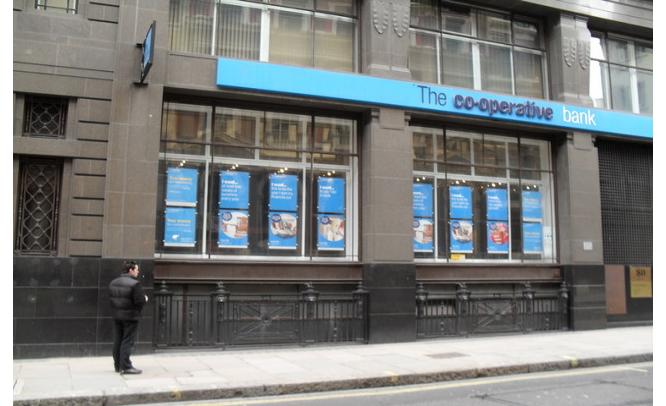The Co-operative group has beefed up its management by recruiting the former finance director of Morrison’s and the chairman of Britain’s Nationalized Banks.
June 06, 2013: The Co-operative Group has made senior personnel changes in an attempt to stabilize its troubled bank following a credit downgrade and deep concerns on its capital levels. Richard Pennycook, widely regarded as a ‘turnaround specialist’ has been appointed as group finance director. He joins from Morrisons supermarket where he spent more than eight years in a similar role and revived its financial fortunes after its botched Safeway acquisition. The Conglomerate, whose activities range from food retail to funerals, has also appointed non-executive chairman for its financial services arm and banking operations. This unit would be headed by Richard Pym, the former chief executive of Alliance & Leicester. Pym, will replace Paul Flower who was in the position for more than 3 years. Mr.Pym is the current chairman of UK Asset Resolution, the government owned “bad-bank” also in troubled waters. Richard Pym is a highly respected figure in the financial services industry and his appointment along with Niall Booker as chief executive means the bank is in safer hands.
The Co-operative Bank was recently forced to reassure its customers that it does not need a government bailout after being given a very low rating by credit rating agency Moody’s. Analysts at Barclay’s estimate, that the ‘capital hole’ would be as high as £ 1.8 billion. The bank has also stopped lending to its new corporate customers as it is seeking to revamp its finances. The Co-op’s financial arm has acknowledged its need to strengthen its capital position in light of the economic downturn and the pending introduction of enhanced regulatory requirements. In its endeavour to bolster the performance of the bank it has already appointed Niall Booker, a HSBC veteran to lead the stabilization effort as the new chief executive of the Co-operative bank. Mr. Pennycook and Mr. Pym are the latest signings by the food-to-funerals group. The Co-op had been under intense scrutiny since pulling out of the deal to buy more than 600 branches from Lloyd Banking Group. The downslide of the bank started in 2009 when it bailed out Brittania, which was Britain’s second biggest building society, resulting in its capital woes. It inherited the toxic commercial property and home loans which resulted in a loss of £ 662 million in 2012. The bank is also raising money through the sale of its life insurance and asset management businesses to Royal London, a mutually owned rival. Members of Royal London voted to authorize the £ 219 million deal earlier this week. As the bank is a member owned institution it cannot raise funds through issue of shares to boost its capital. The bank is also considering slashing the income paid to its junior debt holders. Mr.Pym said “We are clearly focused on actions to strengthen the bank’s balance sheet and resolving the current underlying issues. The British banking system is very concentrated, with a small number of institutions, and it is important that the co-op bank plays its full part in maintaining a competitive landscape for its customers”. Chairman of Co-op bank Len Wardle opined that the Manchester based group now possesses a “formidable” top team with “exceptional strategic, financial and operational expertise”.
The wider co-operative group was founded in 1863, has more than 6 million members and more than 100,000 employees.

